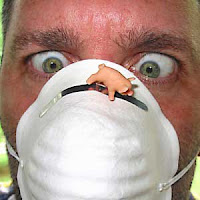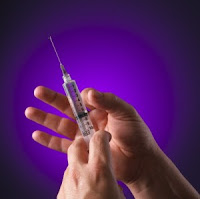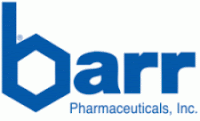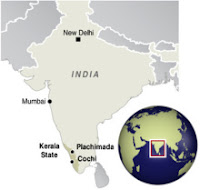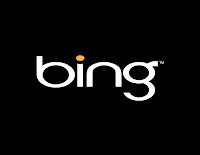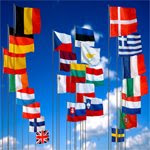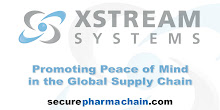
The following are the key points from Jim Kouri in an article written in the Law Enforcement Examiner, which is a publication associated with the National Association of Chiefs of Police.
Mr. Kouri cites some excellent statistics and quotes from several industry thought leaders and properly encapsulates the issue.
Counterfeit Prescription Drugs a Deadly ProblemAugust 23, 2009; Law Enforcement Examiner; by Jim KouriAccording to the World Health Organization's definition a counterfeit medicine "is one which is deliberately and fraudulently mislabeled with respect to identity and/or source.
Counterfeiting can apply to both branded and generic products and counterfeit products may include products with the correct ingredients or with the wrong ingredients, without active ingredients, with insufficient active ingredients or with fake packaging."
It is estimated that one in 20 pharmaceutical products on the market is counterfeit, with the number rising to one in three in some developing countries.
Counterfeit pharmaceuticals are manufactured and distributed by criminals, companies or individuals who have the desire to make money unlawfully. They may contain too much, too little or no active ingredient, the wrong ingredients or high levels of impurities, contaminants and even toxic substances. They could be reject or out-of-date formulations withdrawn from the market which are obtained by counterfeiters, re-labeled as bona fide product and introduced back into circulation. They have killed and injured thousands around the world.
The consequences of such counterfeits can vary. They can either fail to treat the illness or condition for which they are being taken (resulting in prolonged illness or death and wastage of valuable healthcare resources) or they can be the direct cause of death by containing lethal ingredients. Whether they fail to promote or restore health, or are the direct cause of death, they are fast becoming a global menace — both to their unwitting consumers and to the pharmaceutical industry as a whole.
Participants at the Global Forum on Pharmaceutical Anti-counterfeiting in Paris recently demanded increased cooperation at all levels and a framework convention to fight counterfeiting of medicines. Combating counterfeit drugs requires the involvement of all parties in the healthcare and pharmaceutical delivery system, placing the onus on manufacturers, all supply chain stakeholders, patients and health professionals as well as regulators and law enforcement to mobilize against fake medicines. Counterfeit drugs penetrate health systems throughout the world, both in industrialized and in developing countries.
Julian Mount, Senior Director European Trade, Pfizer Inc. said "there is a need for stakeholder accountability, uniform systems and regulation leading to accountable supply chain management by all players delivering medicines to patients in Europe. This means pan-European legislation, regulatory coordination, appropriate technologies and the need to better enforce the repackaging of medicines to ensure patient safety and medicine integrity."
"As long as the fight against counterfeits is not a concerted effort, criminals will be able to exploit the loopholes in the system," says Ian Lancaster, Director of Reconnaissance International, specialists in anti-counterfeiting strategies and organizers of the Global Forum. "The fight includes prevention measures by manufacturers, communication and effective education of professionals and patients, and ensuring that punishments are appropriate to this deadly crime."
Jim Kouri, CPP is currently fifth vice-president of the National Association of Chiefs of Police and he's a staff writer for the New Media Alliance (thenma.org). In addition, he's the new editor for the House Conservatives Fund's weblog. Kouri also serves as political advisor for Emmy and Golden Globe winning actor Michael Moriarty.He's former chief at a New York City housing project in Washington Heights nicknamed "Crack City" by reporters covering the drug war in the 1980s. In addition, he served as director of public safety at a New Jersey university and director of security for several major organizations. He's also served on the National Drug Task Force and trained police and security officers throughout the country. Kouri writes for many police and security magazines including Chief of Police, Police Times, The Narc Officer and others. He's a news writer for TheConservativeVoice.Com and PHXnews.com. He's also a columnist for AmericanDaily.Com, MensNewsDaily.Com, MichNews.Com, and he's syndicated by AXcessNews.Com. He's appeared as on-air commentator for over 100 TV and radio news and talk shows including Oprah, McLaughlin Report, CNN Headline News, MTV, Fox News, etc. To subscribe to Kouri's newsletter write to COPmagazine@aol.com and write "Subscription" on the subject line.
To view article visit:
www.examiner.com.
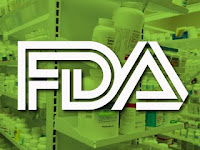 The Food and Drug Administration in the past several months has employed a broad array of tools-consent decree, drug seizures and 68 warning letters about products used to treat influenza A (H1N1) in its efforts to accelerate its stricter enforcement campaign within the pharmaceutical industry according to Edwin Rivera-Martinez, Chief of the International Compliance Branch in CDER Division of Manufacturing and Compliance.
The Food and Drug Administration in the past several months has employed a broad array of tools-consent decree, drug seizures and 68 warning letters about products used to treat influenza A (H1N1) in its efforts to accelerate its stricter enforcement campaign within the pharmaceutical industry according to Edwin Rivera-Martinez, Chief of the International Compliance Branch in CDER Division of Manufacturing and Compliance.
